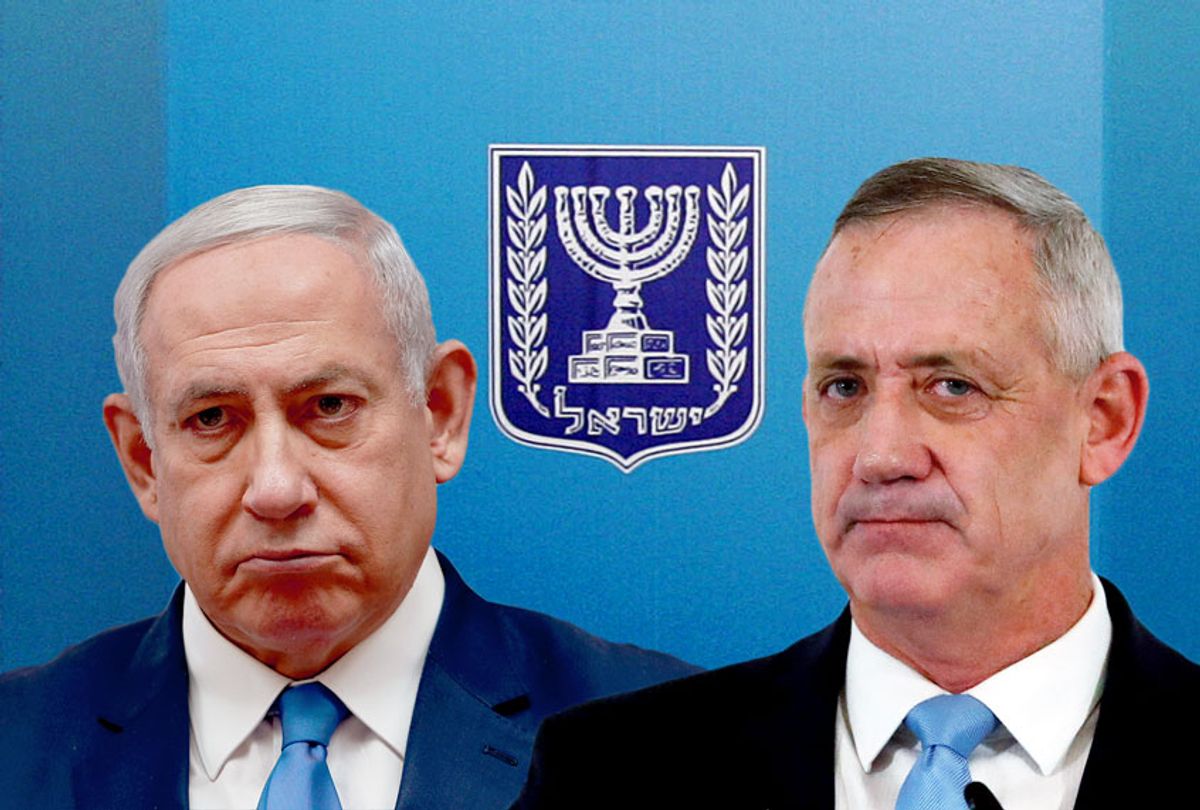Israeli Prime Minister Benjamin Netanyahu suffered a major political setback on Thursday when his chief rival, Benny Gantz, rejected his offer to form a unity coalition together.
Netanyahu reached out to Gantz Thursday in a video clip in which he asked the Blue and White party leader to help him "set up a broad unity government," "demonstrate responsibility" and "pursue cooperation." Gantz responded to Netanyahu's request by saying he would only lead a "liberal" coalition, a statement which excluded the ultra-Orthodox political bloc on whom Netanyahu has relied throughout his tenure.
Moshe Yaalon, another Blue and White leader, added that the party would not enter into a coalition led by Netanyahu because of the corruption charges against him. Netanyahu replied that he was "surprised and disappointed" by the response from Gantz's team.
"Gantz isn’t refusing, actually," Natan Sachs, the director for Center for Middle East Policy at the Brookings Institution, told Salon by email when asked about Gantz's move. "He’s rebuffing Netanyahu’s rather disingenuous call for national unity after Netanyahu formed a bloc with the whole right-religious camp. Gantz is very open to national unity but on different terms."
Sachs added, "For Gantz to be prime minister, he likely needs a national unity government with the Likud, but that need not necessarily be the Likud led by Netanyahu."
Netanyahu's political future in Israel is precarious despite his distinction of being the Middle Eastern country's longest-serving prime minister. Earlier this year, Israeli Attorney General Avichai Mandelblit indicted the prime minister on charges of fraud, bribery and breach of trust, allegations which could land Netanyahu in jail should he be convicted. To stave off a prison sentence, Netanyahu has pushed for an immunity bill, which would shield him from prosecution while he serves as prime minister. The law was backed by Netanyahu's ultra-Orthodox supporters, and when Netanyahu 65 seats in the April elections, it seemed his political future was secure.
A wrench was thrown into his plans, however, when the leader of the Yisrael Beiteinu party, Avidgor Lieberman, demanded that ultra-Orthodox Jewish men be required to serve in the Israeli military like other Israeli citizens. Because Israeli prime ministers are elected through the creation of majority coalitions in their parliament — the Knesset — Lieberman's ability to take five votes away from Netanyahu meant the incumbent would only receive 60 of the 61 votes necessary to receive a majority in the 120-member legislative body. As a result, the Knesset was dissolved in May, and snap elections were called with Gantz once again emerging as Netanyahu's chief rival.
It is unclear who will lead Israel after the elections held earlier this week. With 95 percent of votes counted, the Likud-led coalition supporting Netanyahu were poised to control 55 of parliament's 120 seats while 56 seats were likely to be controlled by the center-left alliance supporting Gantz. After all of the votes have been counted, President Reuven Rivlin will consult all of the parties who won representation in the Knesset and allow a party leader up to 42 days to form a new government.



Shares